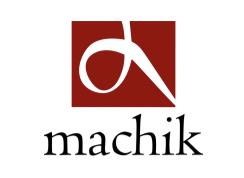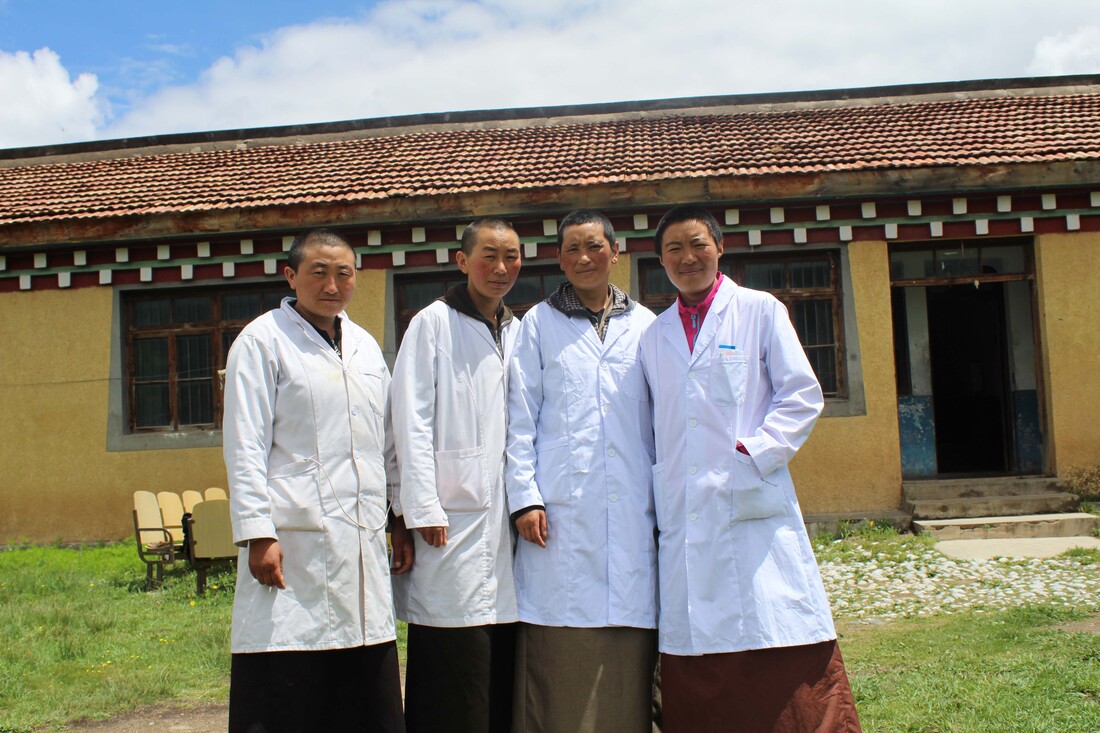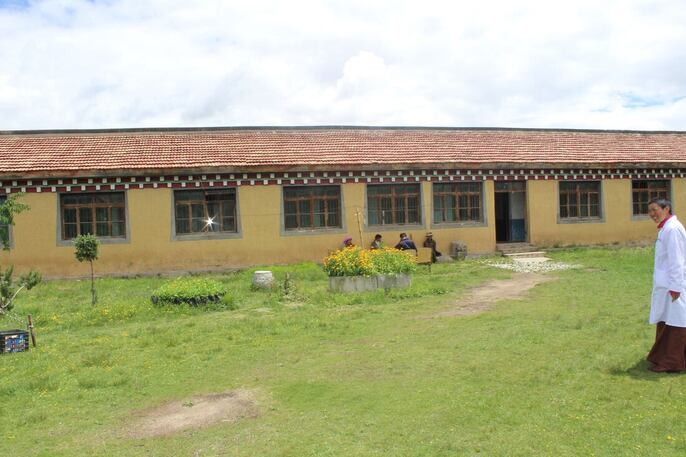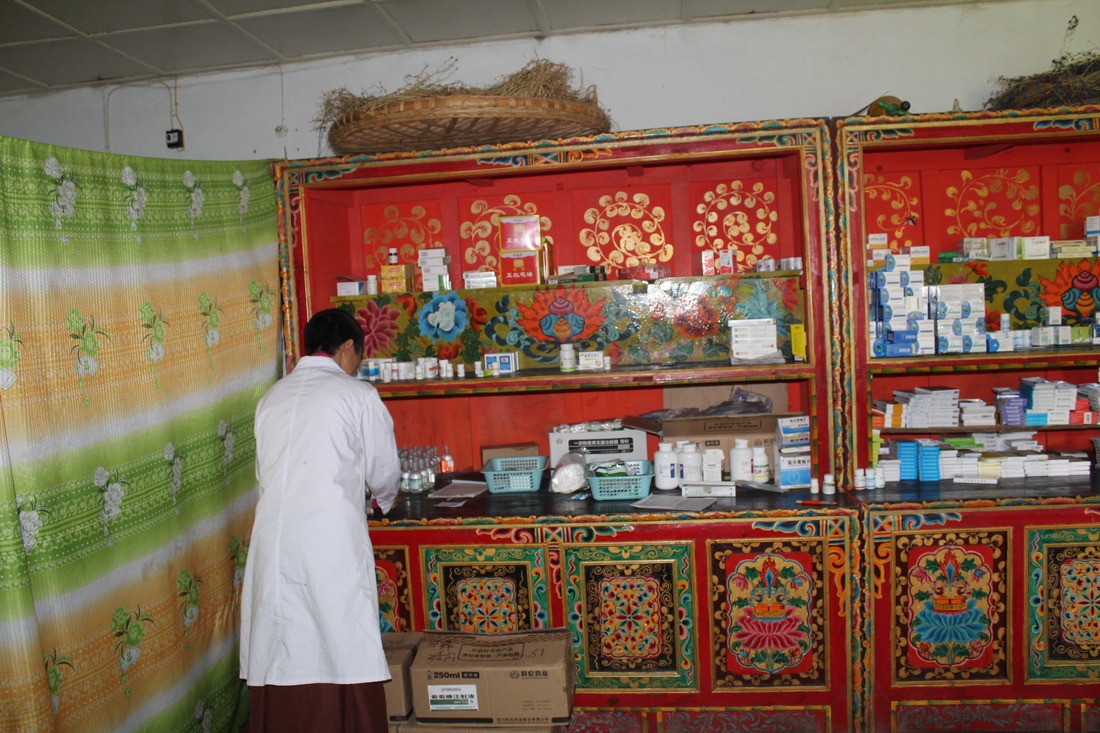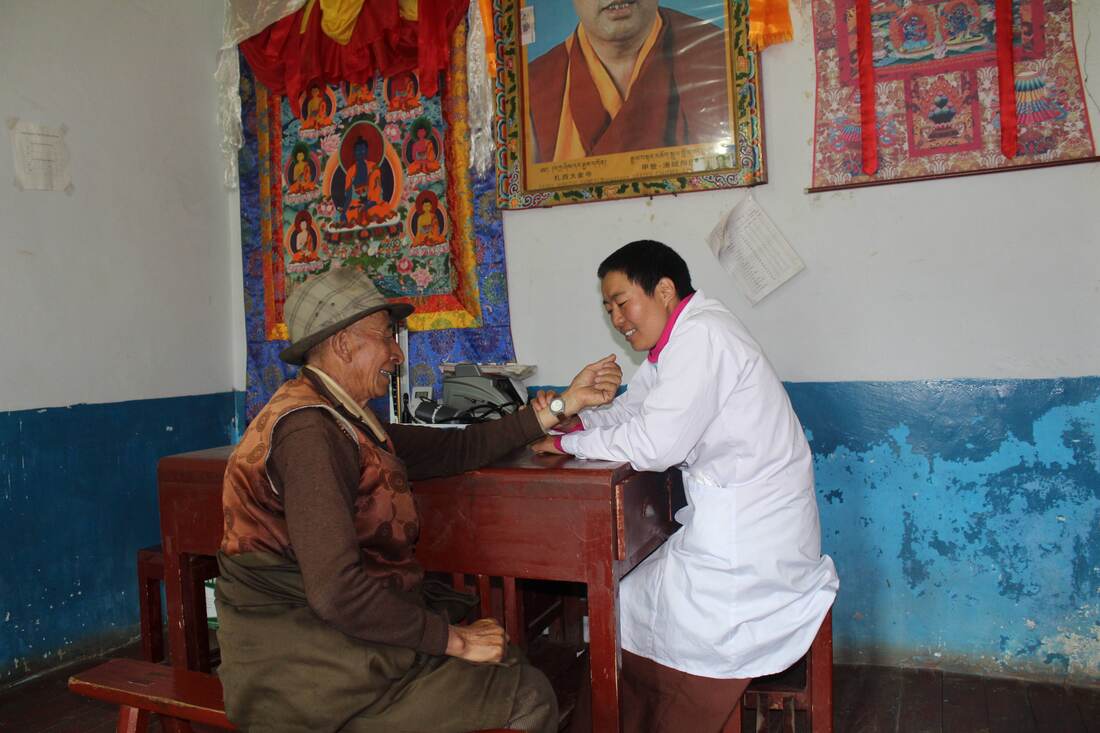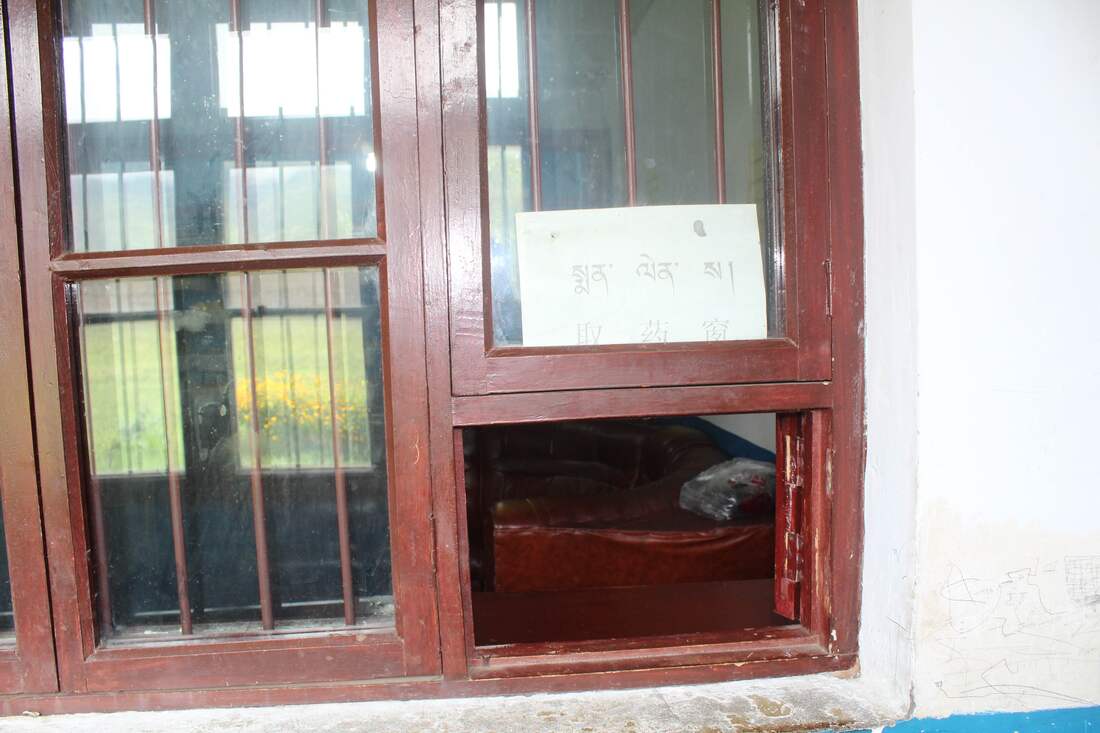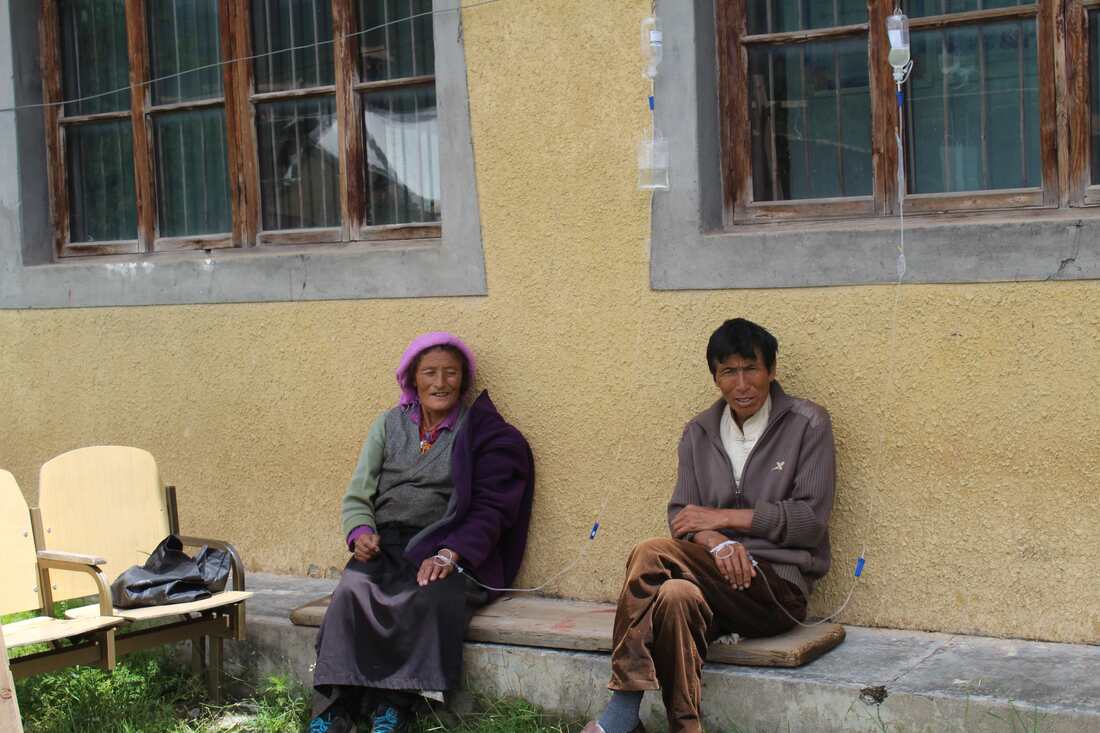Pende Clinic Project
Machik is a partner of the Pende Clinic Project
The Pende Clinic was first established in 2001 in Rongpa Tsha in Ganze County, Kham, in eastern Tibet, to provide heath care to a rural Tibetan community. Pende Clinic officially opened and started treating patients on July 13, 2003. The clinic has been of huge benefit to the local Tibetan communities in surrounding villages who otherwise would have to travel about 30 kilometers out or more to seek medical care. Pende Clinic serves around 31 villages with approximately 2,000 households which is a population of about 16,000 in Rongpa Tsha.
MISSION
To provide the best quality and most affordable health services possible to rural Tibetan communities by improving healthcare standards, by providing further training for the female Menpas (healthcare providers), by improving public health education, by empowering , by accelerating women in leadership roles and by building stronger, healthier and happier families and communities.
GOALS
To specifically focus on women's reproductive health education including prenatal and postnatal care, personal & menstrual hygiene, and puberty education.
To create employment for local people in sustainable producing Tibetan medicines with local resources.
To provide regular weekly or monthly public health and gender based education in rural communities, raise awareness of the importance of reproductive health and self-care; and to train other women to be change agents.
To create a pharmacological production center to produce high-quality herbal medicines at low cost.
To create employment for local people in sustainable producing Tibetan medicines with local resources.
To provide regular weekly or monthly public health and gender based education in rural communities, raise awareness of the importance of reproductive health and self-care; and to train other women to be change agents.
To create a pharmacological production center to produce high-quality herbal medicines at low cost.
DAILY OPERATION
Pende opens 24/7 and the Menpas travel throughout the rural areas whenever families request their help. Each day an average of about 30 patients travel to Pende Clinic for treatment.
CHALLENGES FOR PENDE CLINIC
1. Space & Facilities: The greatest challenge at Pende Clinic is the limited facilities and resources available to the healthcare providers. The Pende Clinic is a one-storey building with ten rooms that includes the Menpas' residential rooms, a dispensary and a shared kitchen. There is no dedicated space for patients to stay and convalesce. The examination or consultation rooms are the very same rooms as in which the Menpas live, so it is very inconvenient and unsanitary for patients and healthcare providers. In the center of the yard, there is a make-shift canopy with cardboard flooring that serves as the patients’ recovery room.
2. Basic Medical Supplies: Pende Clinic has a shortage of basic medical equipment and supplies. For instance, they do not have enough sterile syringes, surgical tools, medicine bags, scissors, bandages, salves, clamps, chairs, examination tables, hand sanitizer, hand lotion, soap, etc.
3. Medicines: All medicines are imported from other parts of Tibet which is expensive for the Pende Clinic to purchase, and so, they are unable to sell the medicines to local people at low prices.
4. Training: The Pende Clinic is quite unique in that all the Menpas are resident Tibetan nuns. They are highly experienced in hands-on training and are greatly trusted by the local community. However, they wish to receive opportunities for further training in certain specific skills so they can better serve the health needs of their communities.
5. Technology: There are no computers and no internet from which the Menpas can further their skills and knowledge, all prescriptions are handwritten and the Menpas are quite isolated.
6. Weather Challenges: Pende Clinic has limited access to the power grid, and so, they rely on wood and yak dung to cook and provide warmth in the winter. Without any water heater installation in the building, the winter temperatures are a challenge for both Menpas and patients when the weather is below zero and the IV fluids freeze. Pende opens 24/7 and the Menpas travel throughout the rural areas whenever families request their help. Each day an average of about 30 patients travel to Pende Clinic for treatment.
2. Basic Medical Supplies: Pende Clinic has a shortage of basic medical equipment and supplies. For instance, they do not have enough sterile syringes, surgical tools, medicine bags, scissors, bandages, salves, clamps, chairs, examination tables, hand sanitizer, hand lotion, soap, etc.
3. Medicines: All medicines are imported from other parts of Tibet which is expensive for the Pende Clinic to purchase, and so, they are unable to sell the medicines to local people at low prices.
4. Training: The Pende Clinic is quite unique in that all the Menpas are resident Tibetan nuns. They are highly experienced in hands-on training and are greatly trusted by the local community. However, they wish to receive opportunities for further training in certain specific skills so they can better serve the health needs of their communities.
5. Technology: There are no computers and no internet from which the Menpas can further their skills and knowledge, all prescriptions are handwritten and the Menpas are quite isolated.
6. Weather Challenges: Pende Clinic has limited access to the power grid, and so, they rely on wood and yak dung to cook and provide warmth in the winter. Without any water heater installation in the building, the winter temperatures are a challenge for both Menpas and patients when the weather is below zero and the IV fluids freeze. Pende opens 24/7 and the Menpas travel throughout the rural areas whenever families request their help. Each day an average of about 30 patients travel to Pende Clinic for treatment.
